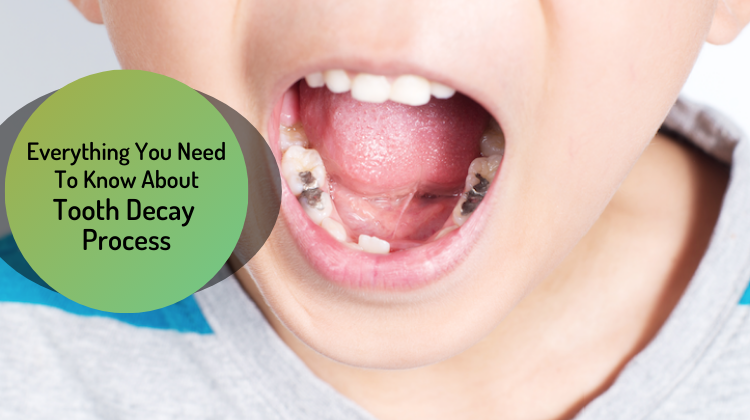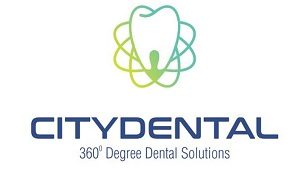
Tooth decay is one of the most common dental condition that affects 80% of children and adults. If left untreated, it can take a toll on your health in the form of gum disease, tooth loss, mouth infection, and even oral cancer. Fortunately, there are medicines and dental treatment available at the best dental clinic in Wakad to prevent, halt, and remove tooth decay.
In this blog, we will discuss how the tooth decay process starts and how you can stop it or reverse its effect on overall health.
Where it all starts?
Our mouth is full of bacteria, both good and bad. The good bacteria offer protection against the harmful bacteria and keep your gums and tissues healthy. Whereas, the harmful bacteria can be detrimental and increases the risk of dental conditions such as gingivitis, periodontal disease, and tooth decay.
Some harmful bacteria use sugar content in the food to make acids. This acid plays a leading role in causing tooth cavity and decay.
What causes Tooth Cavity?
Children or even adults, if they consume sugary items and aerated drinks too much, the acid content attacks the tooth enamel, resulting in loss of minerals. The early sign of tooth decay is a white spot on the teeth where minerals have been lost.
Over time, if you don’t control heavy consumption of sugary items and starch, it may result in loss of minerals, leading to demineralisation of tooth structure, weakening the enamel and ultimately, forming tooth cavity. Fortunately, tooth decay can be stopped or reversed as the enamel repair itself using minerals, saliva, fluoride toothpaste, and dental teeth cleaning procedures.
What are the symptoms of Tooth Decay?
The signs and symptoms of tooth decay vary from patient to patient, depending on the cavity and its location. Following are the symptoms mentioned for tooth cavity, but are not limited to:
- Tooth pain that occurs spontaneously
- Tooth cavity
- Tooth sensitivity
- Sharp pain while eating something hot or cold
- Easily visible holes on the teeth surface
- Brown, black, or white stains on the surface of the teeth
- Difficulty chewing or biting food
- Harmful bacteria
- Plaque formation
- Acid build-up inside the mouth
- Food particles left on the teeth surface after brushing
- Lack of proper diet
- Skipping dental appointments
- Not getting enough fluoride
- Poor oral hygiene
- Location of your teeth: Tooth decay and cavity often occur at the back (molars or premolars). The molars and premolars consist of lots of grooves, pits and crannies, and multiple roots that collect more food particles compared to the front teeth.1st permanent molar is most common tooth to become carious. It’s challenging to reach the back teeth with a toothbrush. Visit the best dentist in Wakad to get routine teeth cleaning and reclaim your confident & healthy smile.
- Eating habits: Food items like milk, ice cream, sugar, candies, soda, and chips stick to the teeth surface, increasing the chances of teeth cavity, due to their nature of not getting easily washed away by saliva.
- Fluoride Toothpaste: With so many kinds of toothpaste launched in the market, it has become a challenging task to choose the best for your oral health. Check for fluoride content in the toothpaste while buying any toothpaste. You can ask an expert dentist in Wakad to prescribe medicated toothpaste for faster and healthier results.
- Dry Mouth: Lack of saliva formation can increase the risk of tooth decay. Saliva helps food content get washed away and remove plaque from the teeth. Many factors contribute to the reduction of saliva formation, such as certain medicines, diseases, chemotherapy, exposure to radiation, smoking, and heavy consumption of alcohol.
- Worn out dentures/crowns: When considering the dental implant treatment in Wakad, ensure the dentures (full mouth dentures/bridges/implants) and crowns are cleaned from time to time. At times, they stop fitting properly, risking the formation of tooth decay and cavity.
- Eating disorders: Anorexia and Bulimia are some eating disorders which might lead to tooth erosion and cavity. Eating disorders can cause indigestion leading to repeated vomiting. The stomach acid, when vomited, can dissolve the enamel and can also interfere with the adequate saliva formation.
- Pain
- Tooth abscess
- Swelling or pus around the teeth
- Damaged or broken teeth
- Difficulty chewing
- Crooked or misshapen teeth
- Tooth loss that affects your smile and confidence
- Tooth infection
- Brush your teeth twice a day.
- Floss after every meal
- Rinse your mouth with fluoride content mouth rinse
- Visit your dentist twice a year
- Drink a lot of water
- Avoid too much of snacking and sipping coffee or other beverages
- Drink unsweetened coffee, tea, and sugar-free chewing gum.
